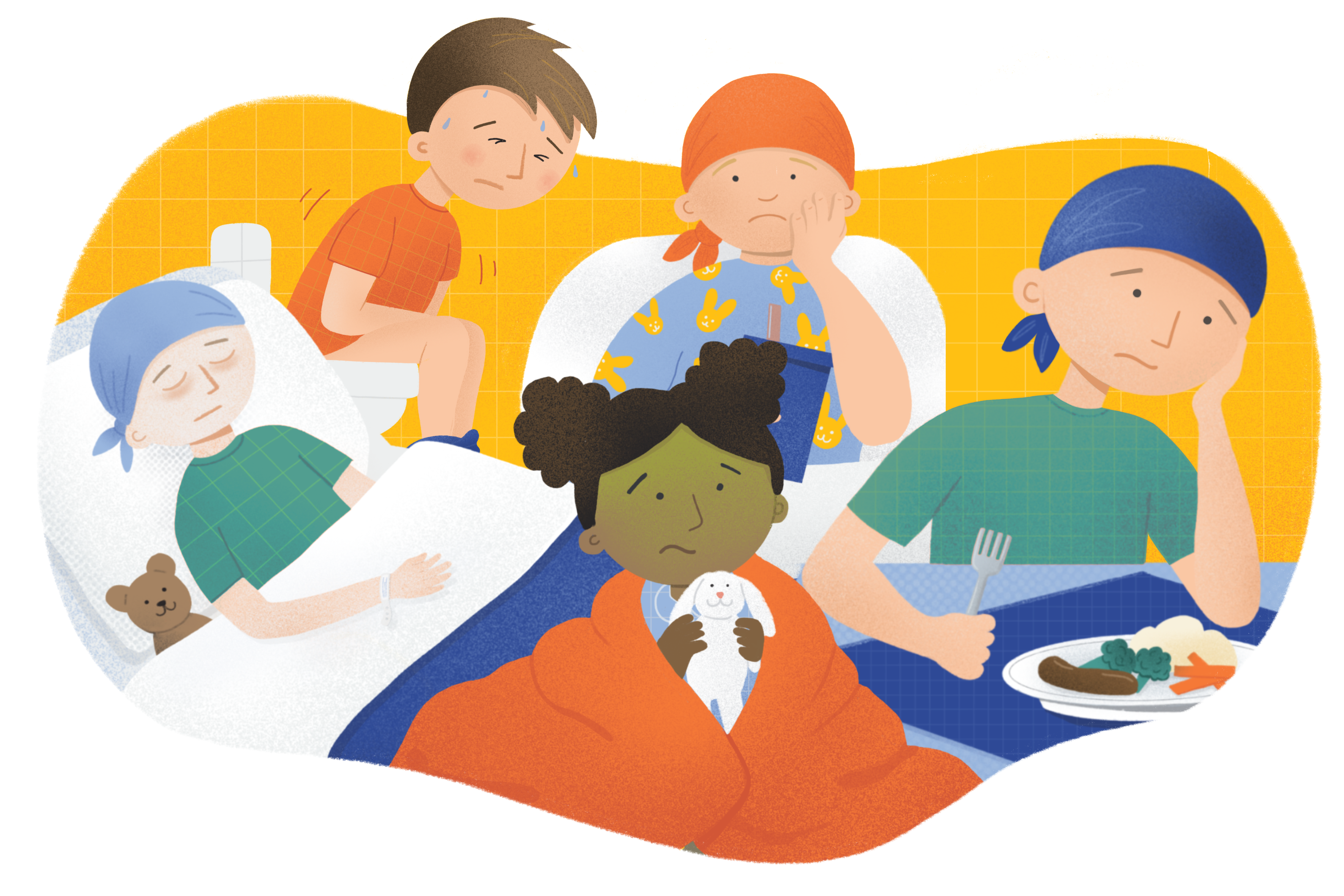Sore mouth in children

Some chemotherapy drugs can cause a sore mouth (mucositis).
What are the symptoms?
Your child’s mouth or gums may get sore. They may also get little ulcers on their tongue, gums and inside their cheeks (mucositis). Their mouth may be more sensitive to hot, cold, acidic or spicy food as well. A sore mouth can also make it hard to eat. Drooling or pooling saliva may be a sign of a sore mouth.
What should I do if I my child has symptoms?
Tell your medical team. If your child is having difficulty eating, a dietitian can help with this.
How is it treated?
Your child’s doctor may prescribe mouthwashes, or medications such as painkillers. If your child has an infection your doctor may prescribe an antibiotic. In some instances, low-level laser therapy may help the mouth to heal.
Tips to help
- Please check your child’s mouth regularly. Talk to the nurses if you are concerned or unsure about anything in the mouth.
- Regular reviews by the hospital dentist will out rule infection, and attend to dental caries. They will also advise on caring for your child’s mouth.
- Your child’s immune system is likely to be weak during treatment. It’s important to keep their mouth clean to avoid infection. Brush teeth using a soft child’s toothbrush and only use mouthwashes recommended by your dentist, radiation therapist or nurse.
- Use lip balm to help keep the lips moist.
- Take sips of fluids like water or milk often. Drink through a straw.
- Consult with the dietitian about suitable food for your child to eat if they have a sore mouth.
- Keep dummies clean and sterilised.
For more information
Phone
1800 200 700



